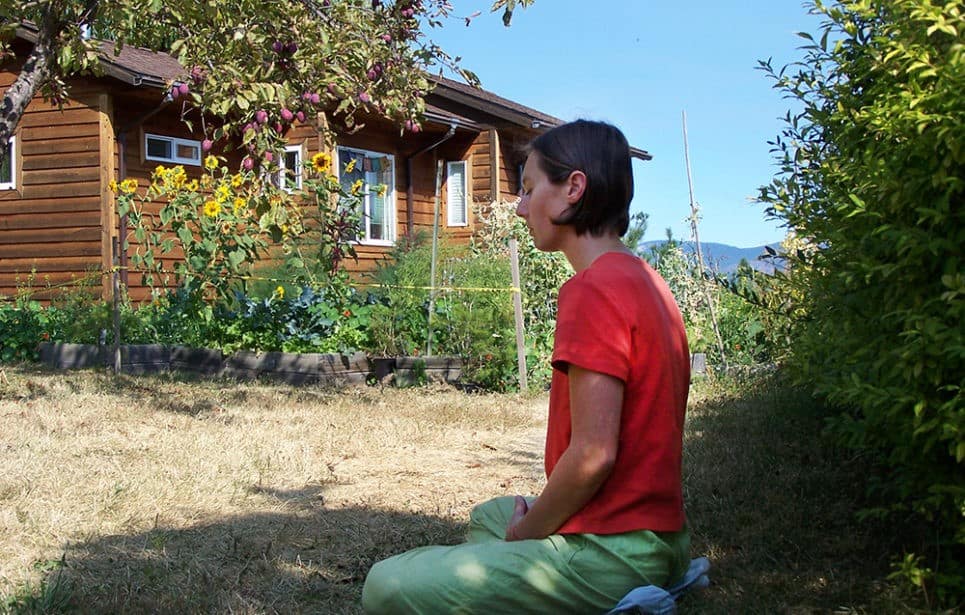A meditation for survivors of suicide

Each paragraph in this guided meditation for suicide survivors is an individual point to contemplate. Read each step and then stop and contemplate it. Look at things from that perspective. Let the feeling described fill your heart. When you’re ready, go on to the next step. (This article is to be included in the forthcoming publication The Suicide Funeral (or Memorial Service): Honoring their Memory, Comforting their Survivors, edited by James T. Clemons, PhD, Melinda Moore, PhD, and Rabbi Daniel A. Roberts.)
Imagine your loved one when he or she was healthy and active. Look at your dear one fondly and think, “I’m so glad that we were able to share life together for as long as we did. I’m so glad that you were part of my life.” Rejoice that you knew that person.
In your mind, say to your loved one, “Everything in life changes—things begin and they end and something new happens after that. We and everything around us are in constant flux. I know we can’t be together always, so even though our separation happened sooner than I would have liked or expected, I’m so glad we knew each other.” While appreciating that you knew that person, let yourself accept that change occurs.
You and your dear one loved each other. No matter whether your relationship with your dear one was usually peaceful or often contentious, the underlying feeling is one of love, of wishing each other well. Bring that feeling into your heart and know that, no matter what pain either of you may have felt at various times, no matter how confused your loved one might have been, no matter what he or she may have done due to their confusion and pain, the base of your relationship was love and wishing each other well. Nothing can change that. Feel that love.
On the basis of that affection, forgive them for anything hurtful they may have said or done during the whole duration of your relationship with them. Forgive yourself for anything hurtful you may have said or done towards them during the time you knew each other. Let go of all conflicted or tumultuous feelings. Let your mind be peaceful.
Say to them:
“Although I can’t imagine the suffering that made you take your life, I know that suffering and confusion are not your essence. And I know that grief and feelings of guilt are not my essence. May we and all beings have happiness and its causes. May we and all beings be free from suffering and its causes.”
Look at them again with love and bid them farewell. Think,
“Wherever you are now, I wish you well. I want you to be happy and to be free from suffering. You have a different experience now, and so do I. So as we both go on, I wish you well. My love is with you.”
Feel the love and compassion in your heart and know that it is not limited to one or even a handful of individuals. Love is not something of limited quantity. So take that love and compassion in your heart and share it with the world. Be kind to whomever is in front of you at any particular moment, for at that moment that person is the embodiment and representative of all beings for you.
Your mind may have the tendency to get stuck in self-centered patterns of thinking, replaying an event over and over in your mind. Should that happen, remember that your dear one died once and it was over. Each time you replay the mental video entitled “what if …” or “how could he have?” you experience the trauma again. Make a strong determination to push the mental “stop” button when you start to replay these mental videos. Come back to the present moment. Be aware that you are in a safe place and that you have caring relationships with many people. Enjoy this moment.
Every one of us has experienced unbelievable pain. Without discounting your individual suffering, place it in the context of the big picture that pain and grief are a commonly shared experience. In that way they have no owner. No individual, ourselves included, has a monopoly on pain. We are all the same in wanting happiness and wishing to be free from suffering. Feel that sameness; know that you share that with all other living beings. Feel compassion for all those who experience misery like you. Send them your love, compassion, and understanding.
Be aware that your relationship with the one who completed suicide is not the only relationship in your life. You have a full life and you have an abundance of goodness in your heart to share with others. Make a decision not to get stuck in a narrow way of thinking that focuses only on this one person. Remember that your dear one had a full life too. Their entire life was not misery and the meaning and value of their life is not defined by how they died. Let the fullness of their life and your life fill your heart.
Listen to the audio file of Venerable Thubten Chodron’s talk on the loss of a loved one to suicide given at the 18th Annual Healing after Suicide Conference in Seattle, Washington on April 29, 2006.
Venerable Thubten Chodron
Venerable Chodron emphasizes the practical application of Buddha’s teachings in our daily lives and is especially skilled at explaining them in ways easily understood and practiced by Westerners. She is well known for her warm, humorous, and lucid teachings. She was ordained as a Buddhist nun in 1977 by Kyabje Ling Rinpoche in Dharamsala, India, and in 1986 she received bhikshuni (full) ordination in Taiwan. Read her full bio.


